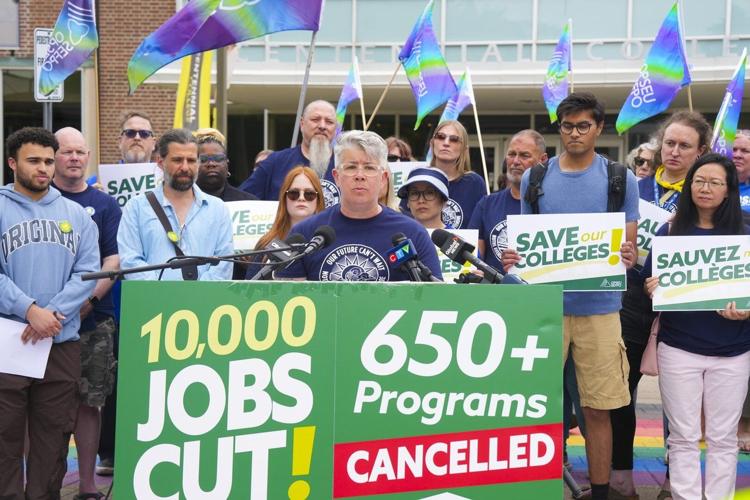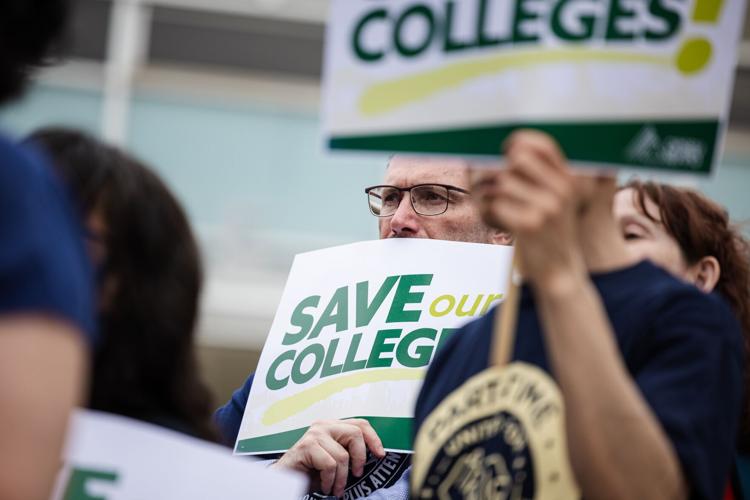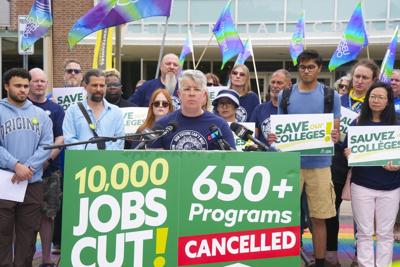Support staff at Ontario colleges are hitting the picket lines after last-ditch contract talks failed to reach a deal before a midnight strike deadline.
While the job action could delay some labs that rely on support staff to operate, faculty are not a part of the job action and classes are expected to go ahead as scheduled.
“Students deserve quality services kept in-house — not contracted out — and done by the support staff who know how to do the job and have institutional knowledge,” the Ontario Public Service Employees’ Union said in announcing the strike to its 10,000 college members early Thursday.
The union said it is fighting for job security as colleges grapple with serious financial challenges that have already led to layoffs, program cuts and campus shutdowns across the province.
Graham Lloyd, CEO of the College Employer Council, said schools are disappointed no deal was reached, but that they could not accept the “poison pills” the union wanted, including a guarantee of no job losses.
The council, which is the official bargaining agent for the province’s 24 public colleges, said that when “enrolments and revenues are down by as much as 50 per cent, OPSEU continues to insist on demands that are fiscally impossible.”
Lloyd said asking for “a complete ban on campus closures, college mergers and staff reductions could force colleges into bankruptcy ... (the council) has repeatedly advised OPSEU that these types of demands simply can never be agreed to. ”
Ontario’s colleges have been hit hard by federal cuts to international students, who pay several times more in tuition, which schools had come to rely on to boost revenues.
They are also struggling with an ongoing tuition freeze and provincial funding they say has not kept up with their actual costs.
Christine Kelsey, who chairs the college support staff bargaining team, said before the strike deadline that “the landscape has changed dramatically since we started bargaining. We are trying to stabilize the system — not just for this term, but for generations to come.”
The full-time college support staffers represented by OPSEU hold a variety of jobs, including disability services, library technologists, trades, co-op placement co-ordinators, food services and IT.
About 10,000 jobs have been lost in the college sector over the past year alone, out of a total of about 60,000 staff and faculty.
Kelsey said the job losses are “causing chaos for students and communities.”
OPSEU, in an online update to members sent around dinnertime Wednesday, told members that in the event of a strike, it would stand up for “not just full-time support staff, but also part-time support staff, and faculty, who choose not to cross our picket lines” urging its members in other bargaining units to support the job action.
The college council said its final offer included a $145 million boost to wages and benefits — including a 2 per cent wage increase in each year of the contract — plus some job security guarantees tied to the use of new technology, and paid leave for members dealing with domestic and sexual violence.Â
It also improved severance payments for workers who are laid off.Â
Given the impasse, Lloyd said since the two sides “remain far apart on a number of important issues, we strongly encourage the union to agree to mediation, arbitration to help us reach an agreement.”
He said “the work that the employees, these support staff, do is extremely important. We have put a proposal to them that is extremely fair.”
Faculty, he added, are expected to report for work. They landed a three-year deal with the colleges following arbitration, a route the council is now urging the support staff union to consider.Â
Lloyd said the union demands around job guarantee “are not a pathway to a negotiated deal,” and that colleges “will go back to the table anytime, provided OPSEU bargains with a view to get an actual negotiated agreement, or mediation, arbitration.”





























To join the conversation set a first and last name in your user profile.
Sign in or register for free to join the Conversation